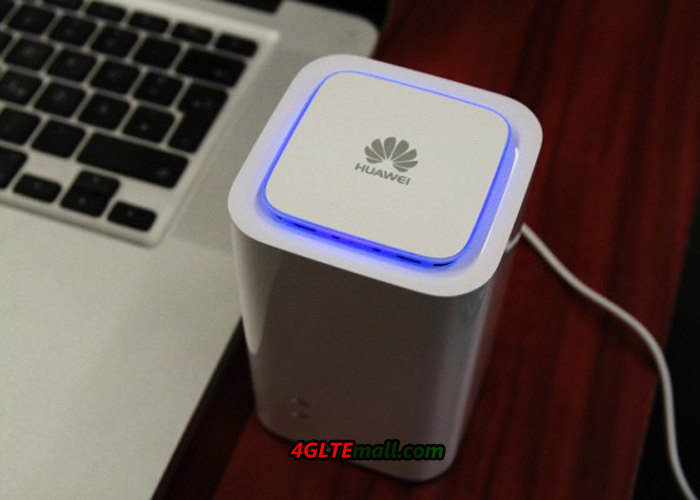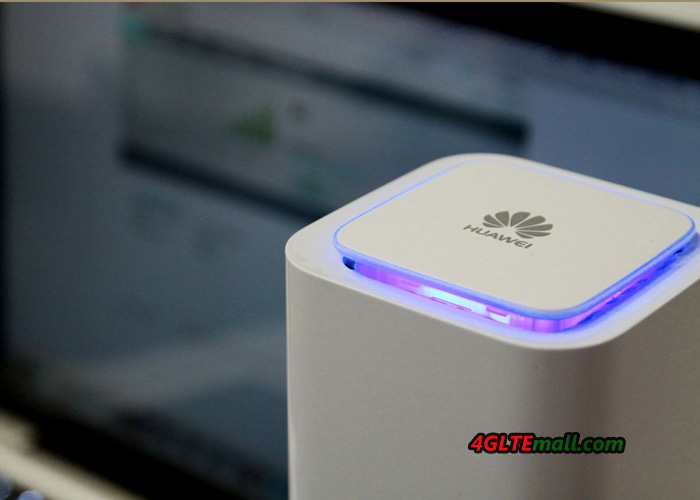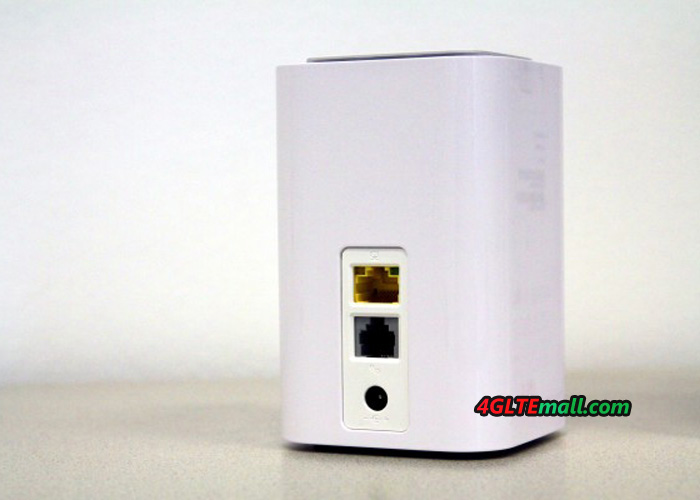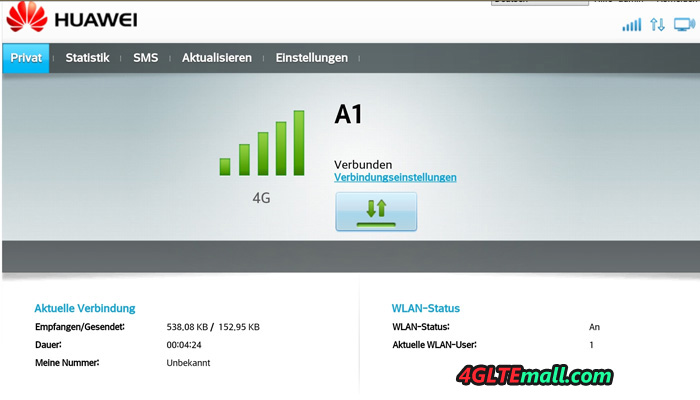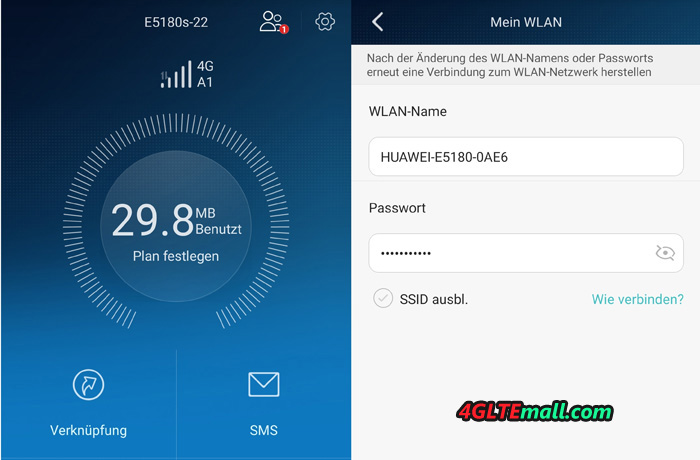Huawei E5180 Router, also better known as A1 Net Cube, has a completely new design like a cube. Today, let us have a look at the most beautiful LTE router on the market. First of all, this is from the Chinese Manufacturer Huawei. Whether the LTE cube E5180 with the beautiful appearance also has other advantages, we will have a review in this test.
I have rarely seen such a router: Most such devices would not necessarily have such a beauty shape. The box is kept in a very simple and pleasant design. The decorative LED is at the top. The LED top could aslo turn on and off the E5180 cube by pressing the Huawei logo. This simple design element makes this router very user-friendly. By a long press on the Huawei logo, user can turn off the cube.
In the package, we will find a LAN cable, power supply and a Quick Start Guide. The Huawei E5180 Wi-Fi router itself still has the following features: Two LED indicators on the front – they inform us of the WLAN and the network status.
On the back we find a network WAN port, the power connection and a telephone connection port. No more LAN or USB ports can be found. And there is no external antenna connector. The micro-SIM card is inserted into a slot at the bottom of the E5180 cube. There we also find the reset button.
The operation of Huawei Cube E5180 is very simple: Simply insert the SIM card and get started. The settings for the network will automatically configure normally. We find the SSID and wireless password on the bottom of the router. Connect your device to the SSID and then you can surf freely.
The A1 Net Cube Huawei E5180 Router uses all major network standards: GSM, UMTS (HSDPA Dual Cell) and LTE. However, LTE Carrier Aggregation, also called LTE Cat6, is not supported. But this should not be a problem because LTE Cat4 bandwidths of up to 150 Mbit/s support; for most users that is fast enough. In practice, I have achieved the download speed up to 85Mbit/s and upload speed to about 43 Mbit/s.
One of the most important purchasing criteria for a router is the network capability. The Huawei E5180 offers the current standards with the 802.11b/g/n, but only in the 2.4 GHz range, the area around 5 GHz is not supported. The wireless coverage range is 250 meters according to Huawei, in practice I had good reception in my whole house (old building). Up to 32 clients could access the WiFi network for surfing. A small disadvantage is the speed: The Ethernet LAN connection only allows a maximum of 100 Mbit/s.
A1 Net Cube Huawei E5180 Technical data at a glance
LTE: Cat 4 until max. download up to 150 Mbit/s, up to max. 50 Mbit/s upload
UMTS: DC-HSPA+, up to max. 42.2 Mbit/s for down, up to max. 5.76 Mbit/s upload
GSM: EDGE, GPRS
connections: 1x Ethernet LAN connection 100 MBit/s, 1x RJ-11 for telephone
WLAN: Wi-Fi 802.11a/b/g/n, 2.4 GHz for up to 32 Equipment and 4 SSIDs; 250 meter range
The web interface looks very tidy and clear. On the home page, the most important information such as the link status and network strength are displayed. In addition, SMS can be sent and interface settings are made around the network. The connection type can be changed by a few clicks, you can switch the network in 2G, 3G or 4G. Basically, the built-in router antenna seems to do a good job, with the A1 Net Cube I had better reception than at the same location with the phone.
The Huawei E5180 Cube router can also configure via App. Through the Huawei Mobile WiFi app, SMS can be sent, to make network settings and statistics can be accessed. The Chinese manufacturer Huawei saves us much time for unnecessary and complicated barriers to entry. Thus the Huawei E5180 router is recommended quite clear for those of us who do not want to stay long with the service or the study of manuals themselves.
Those who want more LAN ports, a USB port, gigabit LAN or advanced networking configuration options, the A1 Net Cube may not meet your requirements. Another Huawei E5186 4G LTE router is recommended.
